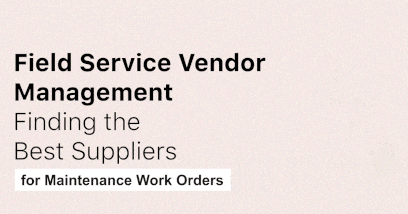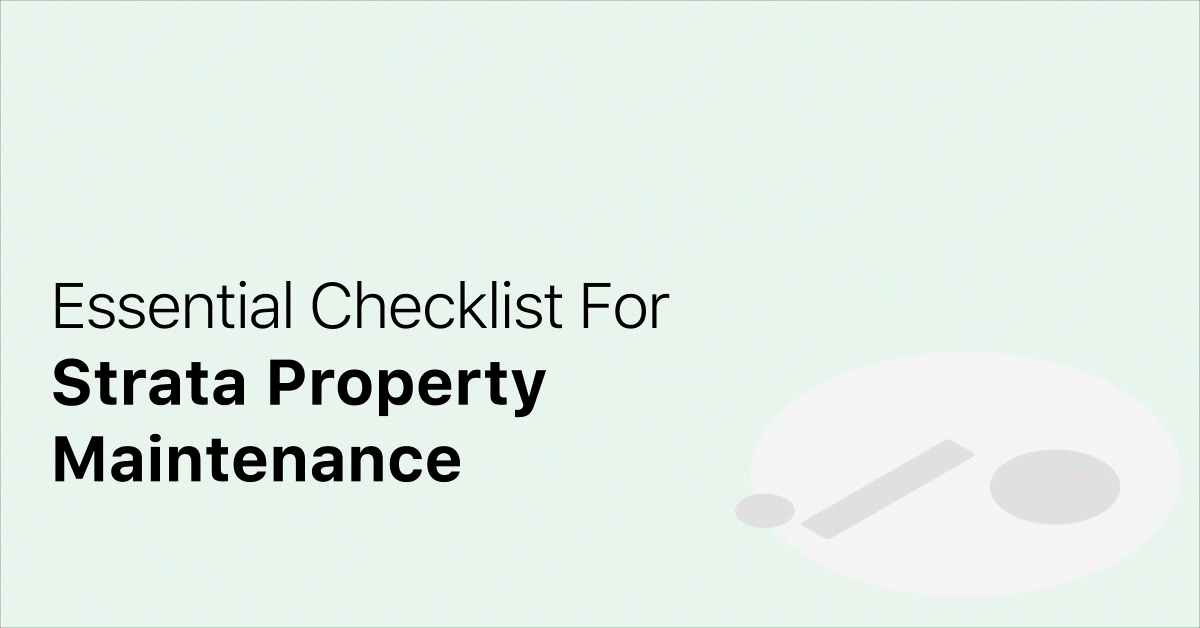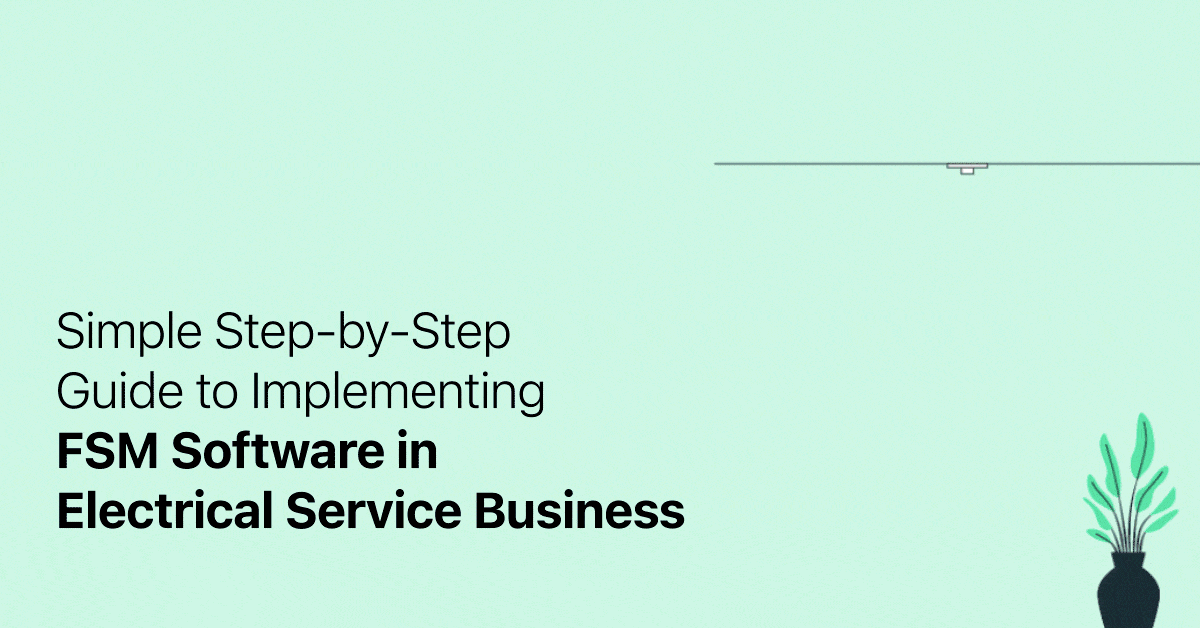What is Vendor Management in Field Services
What is Vendor Management Process
The Field Service Vendor Management Process or Vendor Management Cycle comprises a number of steps in order to successfully hire and retain vendors.
1.) Vendor Selection
Searching for the vendor that best fits a need, is the first and foremost step. These vendors need to be qualified, skilled and be available when needed. Usually, Field Service Management Companies maintain a complete database of their selected vendors, with all their information including contact details, licence and certificates.
2.) Negotiation of Contract
This is an important step and ensures both parties are protected. At this stage, things like terms of service and payment methods are to be discussed and signed in writing. It must also have a renegotiation date, as prices and services are subject to change over time.
3.) Vendor Approval
Once the contract has been signed, a meeting must be set with the management team. They are the ones who will approve the vendor and take them onboard. Once all of their information has been verified, they are now ready to start working with you.
4.) Performance Monitoring
Field Service vendors need to be monitored in order to track their performance. You can do so by regularly keeping tabs on their activities and updates. You can also ask your Property Occupants to rate their service in order to keep quality in check.
5.) Invoicing and Payment
Invoicing and payments must be done based on the contract terms and conditions. In any case, all information on the invoice must be verified by your accounts department before payment is issued.
6.) Vendor Management
A Field Service Management Company has a large number of vendors. It is vital to effectively manage each of them through an information management system. Field Service Management solutions are a great way to store, update and access all vendor information from one place.
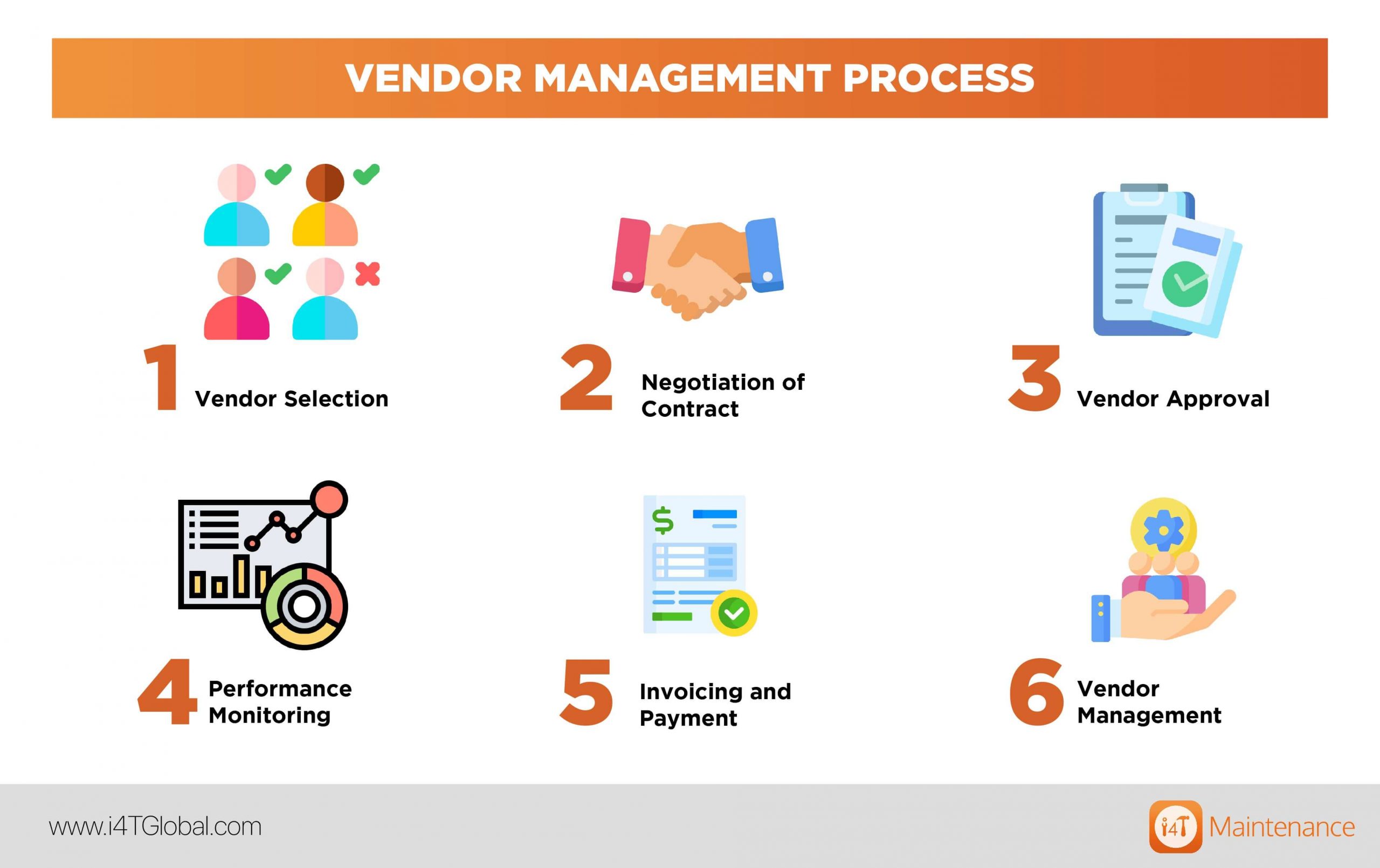
What is Vendor Management System
A Field Service Vendor Management System is a cloud-based platform that helps Maintenance Companies collaborate with and manage their Field Service Suppliers, anytime, anywhere.
This gives Maintenance Companies the freedom to get the work order completed without having to hire full-time technicians for their properties.
Some of the features that are common across most of the Field Service Vendor Management Systems include:
- Scheduling and Dispatching
- Work Order Management
- Predictive Maintenance with AI
- Real-time Updates
- Accounting Integration
- Mobile Access
- Reporting and Analytics
- GPS Integration
- Database Management
- Inventory Management
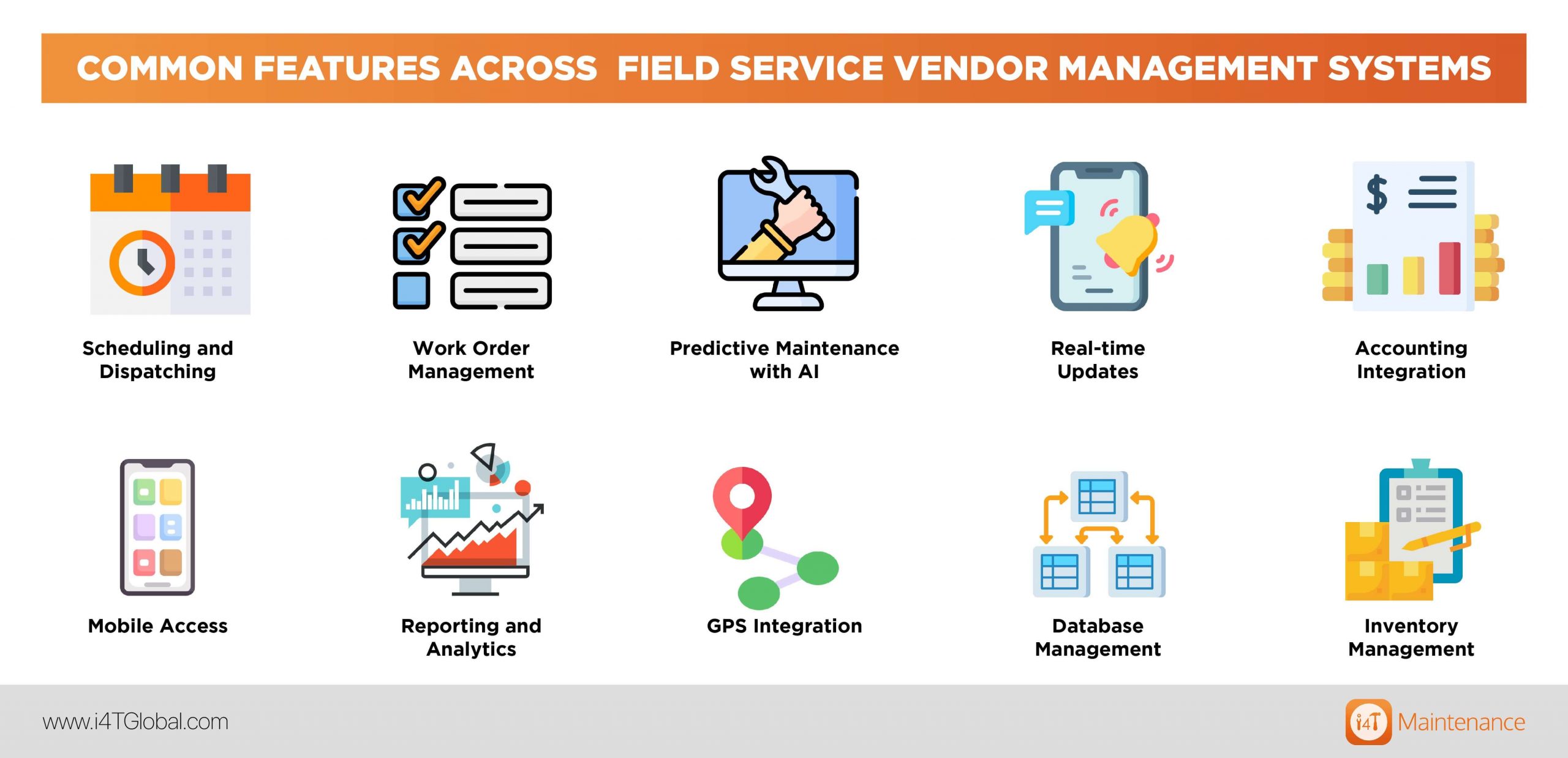
Benefits of Field Service Vendor Management System:
Field Service Vendor Management System empowers teams to deliver service with Transparency, Compliance, Efficiency and Safety, for every work order.
Some of the many benefits you can expect from a Vendor Management System include:
- Faster Customer Service: With all customer information in one place, Property Managers are able to process orders in a much more efficient and automated way.
- Better Security: With the vendor database saved on a cloud based environment, you no longer need to worry about cyber threats. You have full control over who can access the data and who can make changes to it.
- More Compliance: With all vendor certificates added to their profiles and everything documented as it happens, compliance with state regulations is easier to track and manage. This also makes it easier for Property Maintenance Companies to ensure that their vendors fully comply with all Service Level Agreements.
- Timely and Accurate Information Processing: Installation, maintenance and repair information is stored in the system. This ensures all work is carried out as per the equipment manufacturer’s instructions. This minimises the risk of failure or downtime.
- Simpler Workflows: The steps required to complete a work order are not just minimised but also made simpler. Easy collaboration between the teams, quick work order scheduling, dispatching, invoicing and payment processes all make the work flows simpler. You can update, track, complete and record a job in just a few clicks.
- Cost Control: By measuring operating performance of each vendor and evaluating multiple bids, Property Maintenance Companies are able to cut down their costs significantly.
- Quality Control: With every work order being recorded from start to finish, going back and analysing what went wrong contributes greatly to quality control.
- Dedicated Vendor Database: A dedicated vendor database ensures that you always have the right person at the right time available to carry out your work order. Service Agents can rest assured that they are hiring the right person for their work orders. These vendors are licensed and background checked. This gives you the peace of mind that your properties and property occupants are in safe hands.
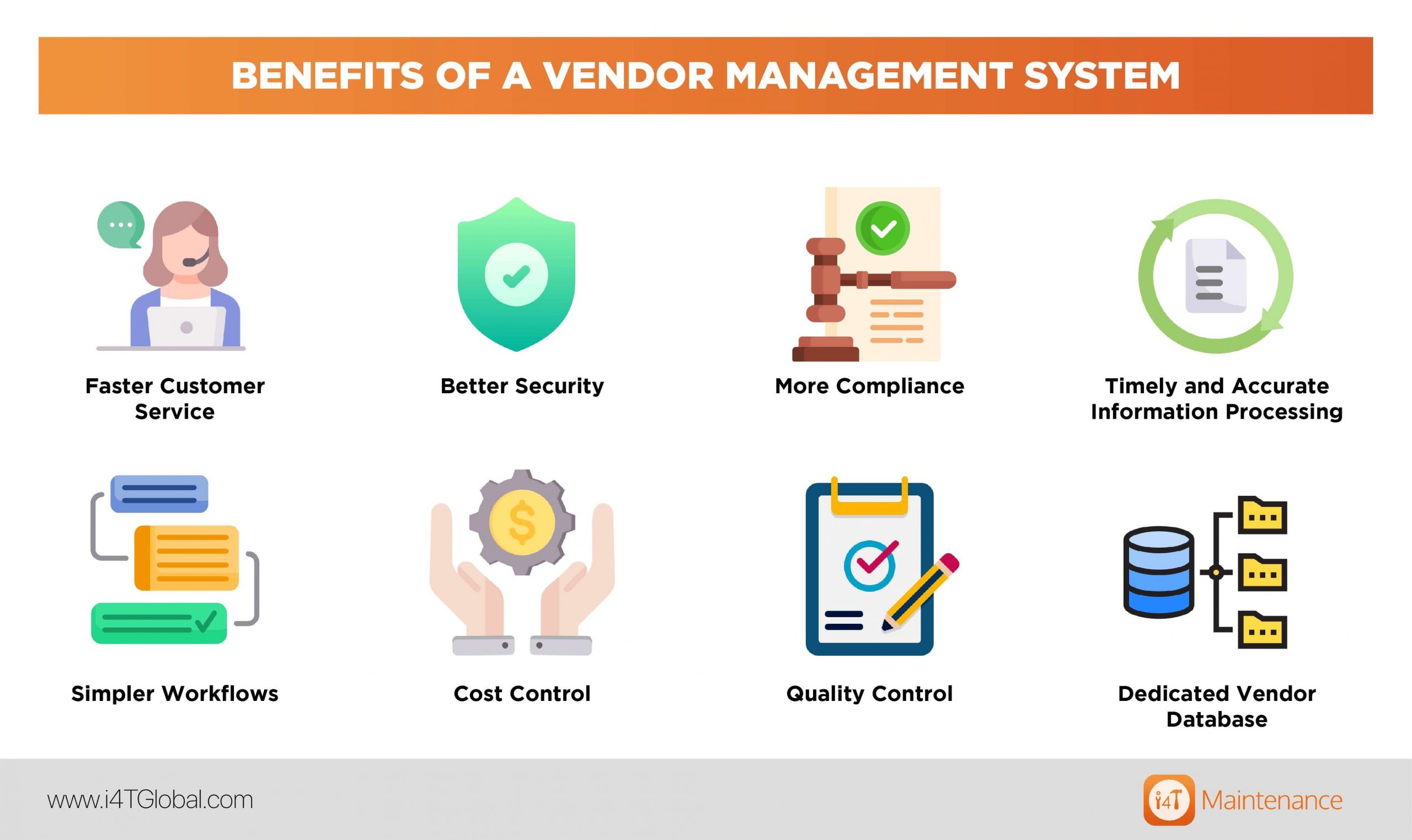
What is Vendor Management Risk Matrix
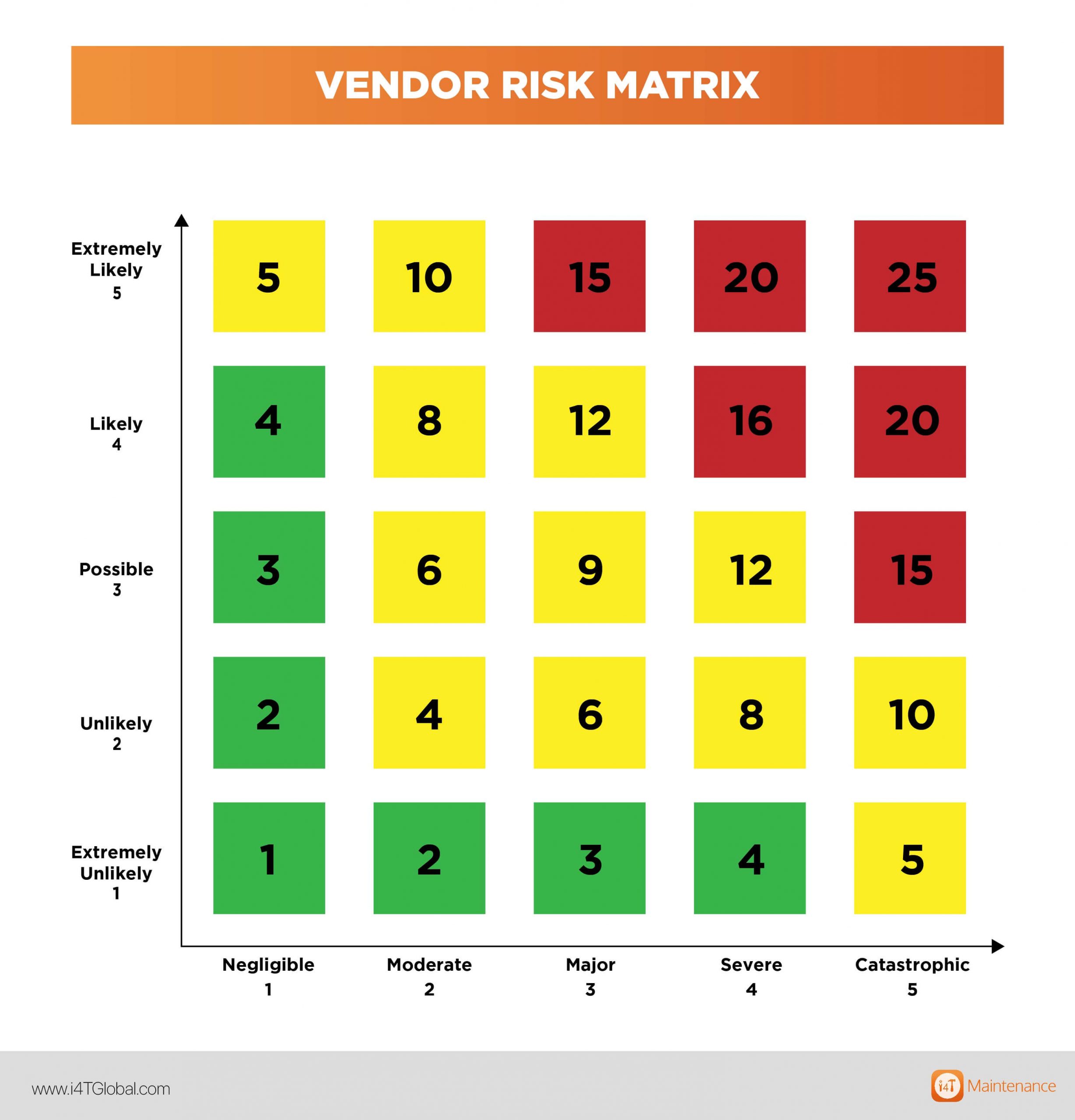
The Vendor Management Risk Matrix is a tool that comes in handy when faced with such a threat. The tool allows you to calculate an estimate of the risk, determine its probability of occurrence, assign a value to it and determine the action needed to handle it.
Developing a vendor risk matrix is a part of the Vendor Management Process and must be done at the time of selecting the vendor. It also needs to be updated as the vendor continues to deliver their services over time.
Vendor Risk Management is important for 3 main reasons:
1.) Prioritises Risks
No two risks can be of the same nature and impact. Using colour coding, the matrix helps you identify the vendor risk based on its priority. These risks can vary from operational risk, audit risk, compliance risk or reputational damage etc.
2.) Strategise Risk Management
“What can go wrong, will go wrong”, that’s how the saying goes. It’s important for Property Managers to develop a risk management strategy to find a solution and mitigate the risk before something has already gone wrong. The Risk Management Matrix allows managers to develop a strategy for high-risk events beforehand
3.) Constant Monitoring of Risk
The business landscape hardly remains the same all the time. Since it is evolving, it is important to keep an eye on how the probability and severity of the risk develops, shifts, increases or decreases. The matrix allows you to identify a particular type of risk and keep a real time view of it as it evolves.
Building a long-term Relationship with your Vendors
Vendor Management, when done right, can be the most powerful tool for Property Maintenance Companies.
Here are a few tips to consider that will help you keep your vendors happy so they can help you achieve your business goals.
- Always pay your vendors on time: Release payments to your vendors as agreed upon in the payment terms and conditions in the signed contract.
- Don’t ask for free quotes: Generating a quote costs time and money to your vendors. If the landlord wants several quotes, let them know that they can have it but it will cost them a call-out fee for each quote.
- Prioritise work orders. Placing everything under the urgent category will only end up with you juggling with multiple service requests. On the other hand, your vendors won’t be available most of the time.
- Value the services of your vendors. They too have food to put on the table every evening. Expecting every service to be too cheap is not going to work.
- Be precise when requesting quotes: Carefully explaining to your vendors the details of the work order is important. The more precise you are, the more accurate the quote would be and the more satisfied the Property Occupant would be with the service.

Wrapping up:
Hot off the press!

With our cutting-edge technology and in-depth knowledge of how the Field Service Management sector operates, the i4TGlobal Team loves to share industry insights to help streamline your business processes and generate new leads. We are driven by innovation and are passionate about delivering solutions that are transparent, compliant, efficient and safe for all stakeholders and across all touch points.

